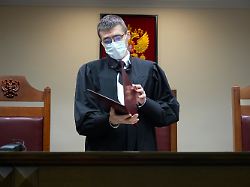Russia bans LGBTQ
Moscow police launch raids on gay clubs
December 2, 2023, 4:58 p.m
Listen to article
This audio version was artificially generated. More info | Send feedback
On Thursday, Russia’s Supreme Court classified the LGBTQ+ movement as “extremist” and banned it. The concrete consequences are initially unclear. Now the Moscow police have searched some clubs and bars that are popular in the scene. There are also said to have been arrests.
Russian police have raided several gay bars and nightclubs in Moscow, according to media reports. On Saturday night, the uniformed men broke into major Moscow clubs under the pretext of looking for drugs, the media and social networks reported. In addition, a sauna that was only accessible to men was searched, various Russian media reported. The apparently coordinated raids took place shortly after the international LGBT movement was banned by the Russian judiciary.
Videos showed police officers, among other things, in front of a nightclub popular with gays where a huge party was taking place. “The music stopped in the middle of the party,” an eyewitness told Ostoroshno Novosti. The police then took photos of the guests’ identification documents. Late on Friday evening, one of the city’s oldest gay clubs in St. Petersburg announced that it was closing. As justification, the “main station” referred to a decision by the Supreme Court from the previous day.
Russia’s Supreme Court on Thursday issued a ban against the “international LGBT movement” for “extremism” and banned its activities on Russian territory. The ruling came into force with immediate effect. However, the court initially did not provide any information as to whether its ruling applied to specific people or organizations in Russia. This meant that its exact effects initially remained unclear. In Russia, “extremism” carries long prison sentences.
Repressions under Putin are increasing
For years, lesbian, gay, transgender and bisexual (LGBT) people have been subjected to increasing political persecution in the country. A court in St. Petersburg on Friday ordered a music television channel to pay 500,000 rubles (5,088 euros) for showing a video of Russian pop star Sergei Lazarev depicting a scene of tenderness between two women. The video for the song “Tak krassiwo” (in German: So beautiful) violated the ban on “homo propaganda”, which criminalizes public displays of same-sex love.
Under Russian President Vladimir Putin, who sees himself as a fighter against Western liberalism, repression against sexual minorities and people of different gender identities has increased massively in recent years. Many of those affected have left Russia out of fear for their lives. Commentators speak of an “Iranization” or “Nazification” of the country. Human rights activists complain that violence against homosexuals and calls for murder often have no consequences for the perpetrators.
